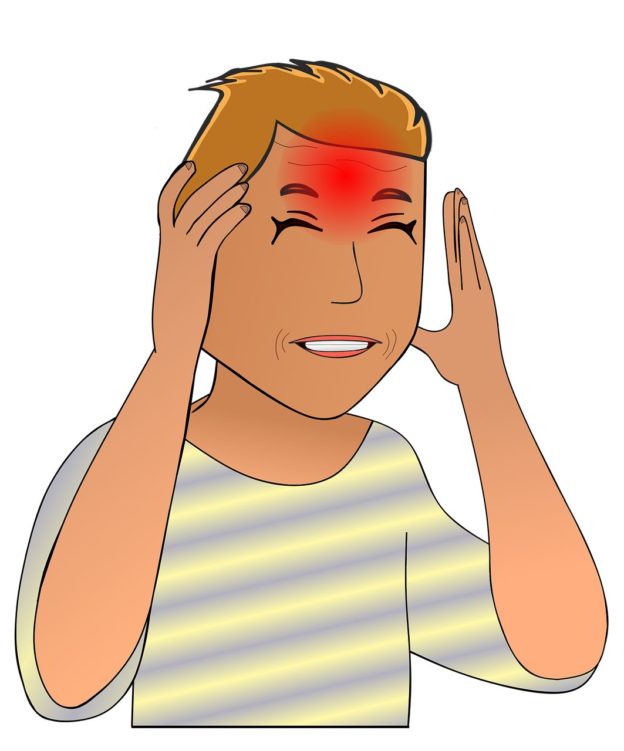Arthritis literally means “joint inflammation,” but it is used as a collective term for a complex family of muscular disorders involving more than 100 different diseases or conditions.
When we think of arthritis, we usually have an image of an elderly person, but arthritis can affect people of all ages, including children.
 Osteoarthritis is one of the most common forms of arthritis, in which joints wear and tear. Symptoms usually develop gradually and include stiff joints, stiffness after rest that improves with movement, pain that worsens after activity or towards the end of the day.
Osteoarthritis is one of the most common forms of arthritis, in which joints wear and tear. Symptoms usually develop gradually and include stiff joints, stiffness after rest that improves with movement, pain that worsens after activity or towards the end of the day.
The cartilage protects the joints, stopping the bone from rubbing against each other. In osteoarthritis, this cartilage becomes damaged. Sometimes the cause of osteoarthritis is not clear. This may simply be due to the overuse of a particular joint, this is called primary osteoarthritis.
In other cases, osteoarthritis may be due, for example, to obesity. In these cases, this is called secondary osteoarthritis.
Rheumatoid arthritis is a common other forms of arthritis. It is an autoimmune disease.
In rheumatoid arthritis, the immune system attacks the joints and other parts of the body, so it produces symptoms that often include pain, fatigue, and warm, swollen, inflamed joints.
It is important to note that it is possible to have both osteoarthritis and rheumatoid arthritis. For example, an individual may have rheumatoid arthritis in their knee and osteoarthritis in their spinal bones.
Osteoarthritis does not cause rheumatoid arthritis, but rheumatoid arthritis can lead to secondary osteoarthritis, damaging the joint in the first place.
Physical activity has a positive effect on arthritis and can improve pain, function and mental health.
Inflammation is a normal process in the body for healing. Inflammation occurs as a defense against viruses or bacteria, as well as responding to injuries such as burns. However, with inflammatory arthritis, inflammation occurs for no apparent reason.
There is no single cause for all types of arthritis; the cause varies in each case according to the type and form of arthritis.
Most types of arthritis are caused by a combination of many factors that work together, although some conditions of arthritis do not have an obvious cause and appear to be unpredictable in their occurrence.
Rheumatoid arthritis occurs when the immune system attacks tissues in the body, especially the connective tissue, leading to inflammation of the joints and pain and degeneration of the connective tissue.
Risk Factors And Symptoms Of Arthritis:
Certain factors have been shown to be associated with a higher risk of arthritis. Some of these risk factors are variable, while others are not.
1. Age
The risk of developing most types of arthritis increases with age
2. Gender
Most types of arthritis are more common in women; 60% of all people with arthritis are women. Gout is more common in men than women
3. Genetics
Specific genes are associated with a higher risk of certain types of arthritis, such as rheumatoid arthritis (RA), systemic lupus erythematosus (SLE), and ankylosing spondylitis (AS).
4. Weight and Obesity
 Being overweight can contribute to both the onset and progression of knee osteoarthritis
Being overweight can contribute to both the onset and progression of knee osteoarthritis
5. Joint Injuries
Damage to the joint can contribute to the development of osteoarthritis in that joint
6. Infection
Many antimicrobial agents can infect the joints and stimulate the development of various forms of arthritis.
7. Occupation
Certain occupations that involve repetitive knee bending and squatting have been linked to knee osteoarthritis.
Warning signs of arthritis include pain, swelling, numbness, and difficulty moving quickly.
8. Pain
Arthritis pain can be constant or it can come and go. The pain can be isolated in one place or you can feel it in many parts of the body
9. Swelling
Some types of arthritis will cause the skin to become red and swollen over the affected area and feel warm to the touch
10. Cruelty
Stiffness is a typical symptom of arthritis, some forms of arthritis are caused by increased stiffness after waking up in the morning, after sitting at a desk for longer, or after sitting in a car for longer, and others resulting from stiffness after exercise or characterized by persistent stiffness
11. Difficulties with fast movements
Moving or getting up from a chair quickly should not be difficult or painful, but it can indicate arthritis or other common problems.
Symptoms of arthritis can develop gradually or suddenly, arthritis is usually a chronic disease, symptoms can come and go, or persist over time.
There is no specific diet that treats arthritis. However, there are several types of foods that can help people with this condition, reducing inflammation.
There are several important habits that can help you successfully cope with the disease:
1. Be organized
Monitor your symptoms, pain level, medications, and possible side effects, for consultation with your doctor.
You can record every change and prevent potential complications. This makes it easier to control the disease and get relief.
2. Stay active
Exercise is useful for managing arthritis and overall health.
Recreational sports are highly desirable, but it is important that the patient does not become overly tired as this can lead to counter-effects.
Even walking your dog regularly or playing video games on consoles can maintain the flexibility of your joints or muscle strength.
The original ways to activate the body and reduce weight are to wash the car, play with children, dance and bike.
3. Eat healthy foods
A healthy diet will strengthen the immune system and can help you gain weight and control inflammation.
 Obesity puts extra pressure on your joints and if you get rid of excess weight, you will greatly alleviate the symptoms of rheumatoid arthritis. Therefore, provide yourself with a healthy and balanced menu that you plan ahead and adhere to regularly.
Obesity puts extra pressure on your joints and if you get rid of excess weight, you will greatly alleviate the symptoms of rheumatoid arthritis. Therefore, provide yourself with a healthy and balanced menu that you plan ahead and adhere to regularly.
Avoid refined, processed foods and pro-inflammatory foods of animal origin and choose whole plant foods that are antioxidant and have anti-inflammatory properties.
4. Improve sleep
Sleeping is not a luxury. It is a process that is very important for your physical and mental health.
Poor sleep can exacerbate arthritis pain and fatigue. Take steps to improve sleep, make it easier to fall asleep – Avoid caffeine and strenuous exercise in the evening.
Go to bed every night at the same time and let your goal be 8 hours of sleep. If you have trouble falling asleep, take a shower with warm water before going to bed to help your body relax and prepare for sleep.
Do not sit in the same position for long periods; have regular breaks when moving.
5. Fight stress
The very course of rheumatoid arthritis treatment can be very stressful for the patient, especially if the symptoms are very pronounced. Anxiety and depression develop.
To prevent the impact of the disease on your psyche, talk to a professional such as your chosen physician or psychologist.
Take the time each day to devote to relaxation and rest. Deep breathing exercises can help you calm down.
Get support from family, friends, and colleagues.
If you have arthritis programs, discussions, and workshops in your place, sign up to participate, share your experience, and learn something new.
Here is a list of supplements that are often important for people with rheumatoid arthritis:
1. Vitamin D3
The best source of Vitamin D3 is adequate sun exposure. If this is not possible, then vitamin D3 supplements may be helpful. Vitamin D3 is extremely important for the body’s immune system.
Numerous studies have shown positive effects for autoimmune diseases when optimal levels of vitamin D3 are reached in the body.
2. Magnesium
Magnesium deficiency is common. Magnesium deficiency leads to constant fatigue, inability to concentrate, irritability, nervousness. The effect of magnesium on the health of our bodies is enormous.
Therefore, it is very important to control magnesium, so if we cannot make up for it naturally, that is, by consuming vegetables in the first place of green leafy vegetables (spinach, kale, chard, then consuming almonds, sunflower seeds, beans, etc., the deficiency can also be compensated by magnesium effervescent tablets that you can get at supermarkets as well as health food stores.
3. Omega 3 fatty acids reduce joint pain and stiffness
The best source of omega-3s is achieved by eating fish (such as salmon, sardines, tuna, mackerel, cod) several times a week.
Many clinical trials with inflammatory conditions in rheumatoid arthritis have found that these acids reduce joint pain, reduce stiffness, and allow for the reduced use of medications used by these patients.
Omega 3 fatty acids reduce inflammatory processes.
Symptoms of omega 3 fatty acids deficiency are extreme fatigue, dry skin, heart problems, mood swings, depression, and poor circulation.
4. Zinc reduces the risk of rheumatoid arthritis
Zinc is a mineral that is essential for the normal functioning of the body. It helps heal wounds, prevents enlargement of the prostate gland, for acne, for the immune system to function.
The sources of zinc are spinach, peas, green beans, pumpkin seeds, red meat, etc.
Zinc deficiency in the diet causes an increased risk of connective tissue inflammation, rheumatism, and cellulite.
Zinc also helps diabetics because of their role in the production of insulin, thus neutralizing excess copper, which is one of the causes of arthritis.
5. Manganese is used in the treatment of inflammation and in arthritis
Manganese is necessary for the normal development of the body helps in the development of bones and connective tissue, regulates blood sugar and thyroid function. Manganese therapy is used in medicine to treat inflammation as well as arthritis.
Manganese is required for the synthesis of basic cartilage components.
Deficiency can lead to knee pain, chronic malaise, fatigue and loss of balance. The main cause of manganese deficiency is an unbalanced diet, in other words, excessive intake of iron, calcium, magnesium, and phosphorus.
Manganese can be found in pineapple, oatmeal, bones, legumes, spinach, and tea.
6. Osteol has been shown to reduce inflammation and protect cartilage from degenerative changes
Osteol is a whey protein that has been proven by many studies to influence bone and joint strength, has been shown to reduce inflammation and protect the cartilage from generative changes.
Osteol has proven protective and regenerative effects on cartilage cells in scientific studies.
It is especially effective in synergies with other arthritis preparations. Its advantage is its affordable price.
Check out more ideas for reducing your arthritis here.











